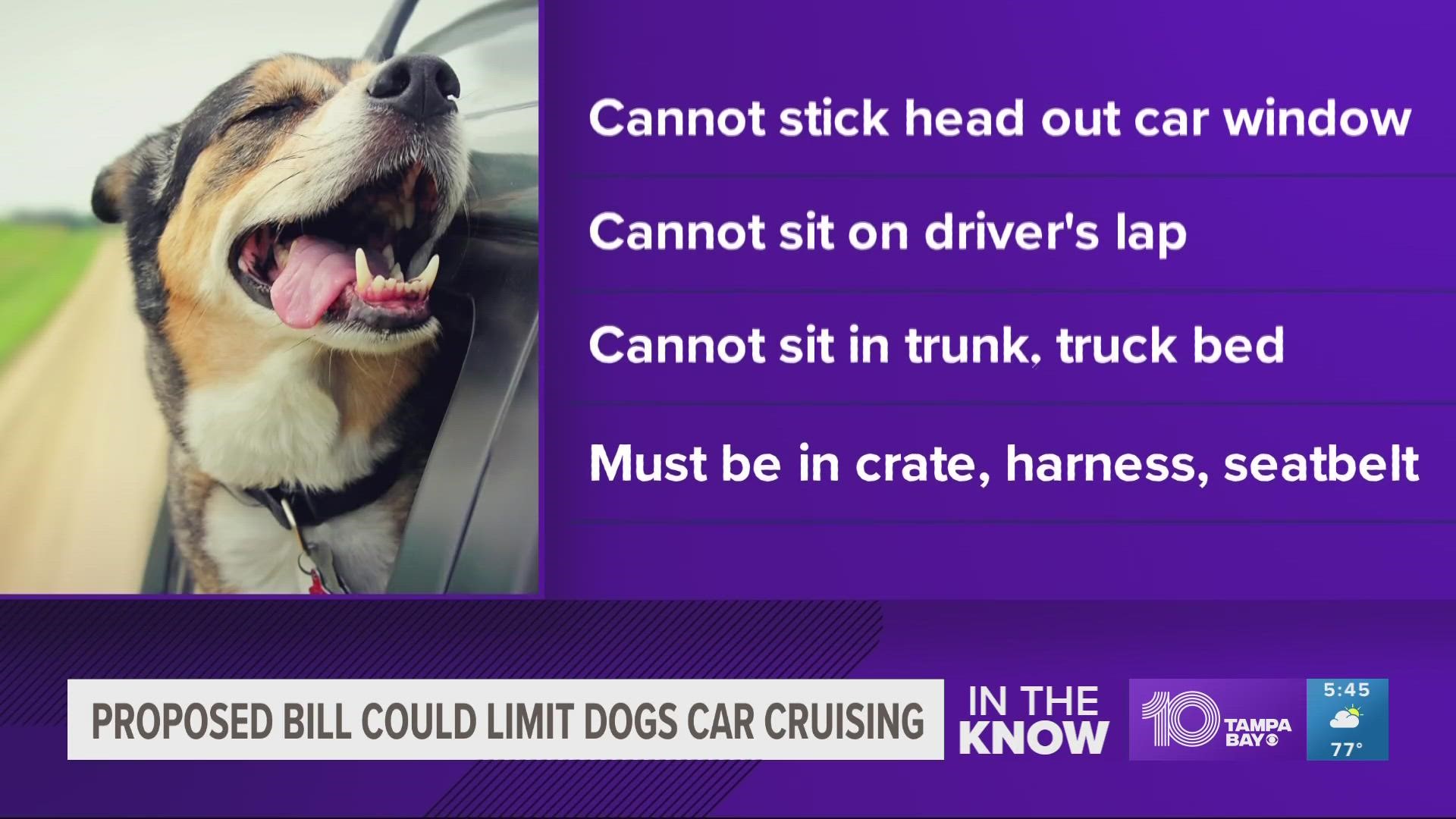TALLAHASSEE, Fla. — The Florida lawmaker who proposed a bill that would make it illegal for your dog to stick its head out of the window has had a change of heart.
The bill, SB 932, would make it illegal to let a dog "extend its head or any other body part outside" a moving car window along with other "animal welfare" provisions.
Following comments from people across the state, Florida Senate Democratic leader Lauren Book said that part of the bill, which covers animal welfare on a broader topic, could be amended.
"Our family has three dogs – two of which are almost 175 pounds each and love sticking their heads out the window – so I welcome and appreciate all public comment on this issue, which is only one piece of a complete proposed overhaul of the state’s animal welfare system as brought to me by veterinarians and advocates," Book said in a statement. "We can easily amend this piece out of the bill while protecting the intent of the animal welfare community and vets who proposed the policy because of unintended injuries they’ve treated — and we will. In the meantime, let’s all invest in a good pair of “doggles” to keep our furry friends safe."
Under the current proposed legislation, anyone who violates the ban would be committing a "noncriminal traffic infraction," which is punishable as a moving violation.
The bill includes protections for cats and cosmetic animal testing as well.
Under the bill, any veterinarian who declaws a cat could be hit with fines of up to $5,000, be placed on probation or get their license revoked. Cat owners who get their felines declawed could be fined up to $1,000.
Exceptions would be granted if the procedure is medically necessary, which doesn't include for "cosmetic or aesthetic reasons."
It would also put a ban on any sort of "cosmetic animal testing" and the sale of rabbits before Easter. The fine for animal testing would be $5,000 the first time and $1,000 each time after that.
SB 932 was just filed last week and would still need to be passed by the Florida Senate and House and signed by Gov. Ron DeSantis to become a law. If that happens, it would take effect on July 1, 2023.

